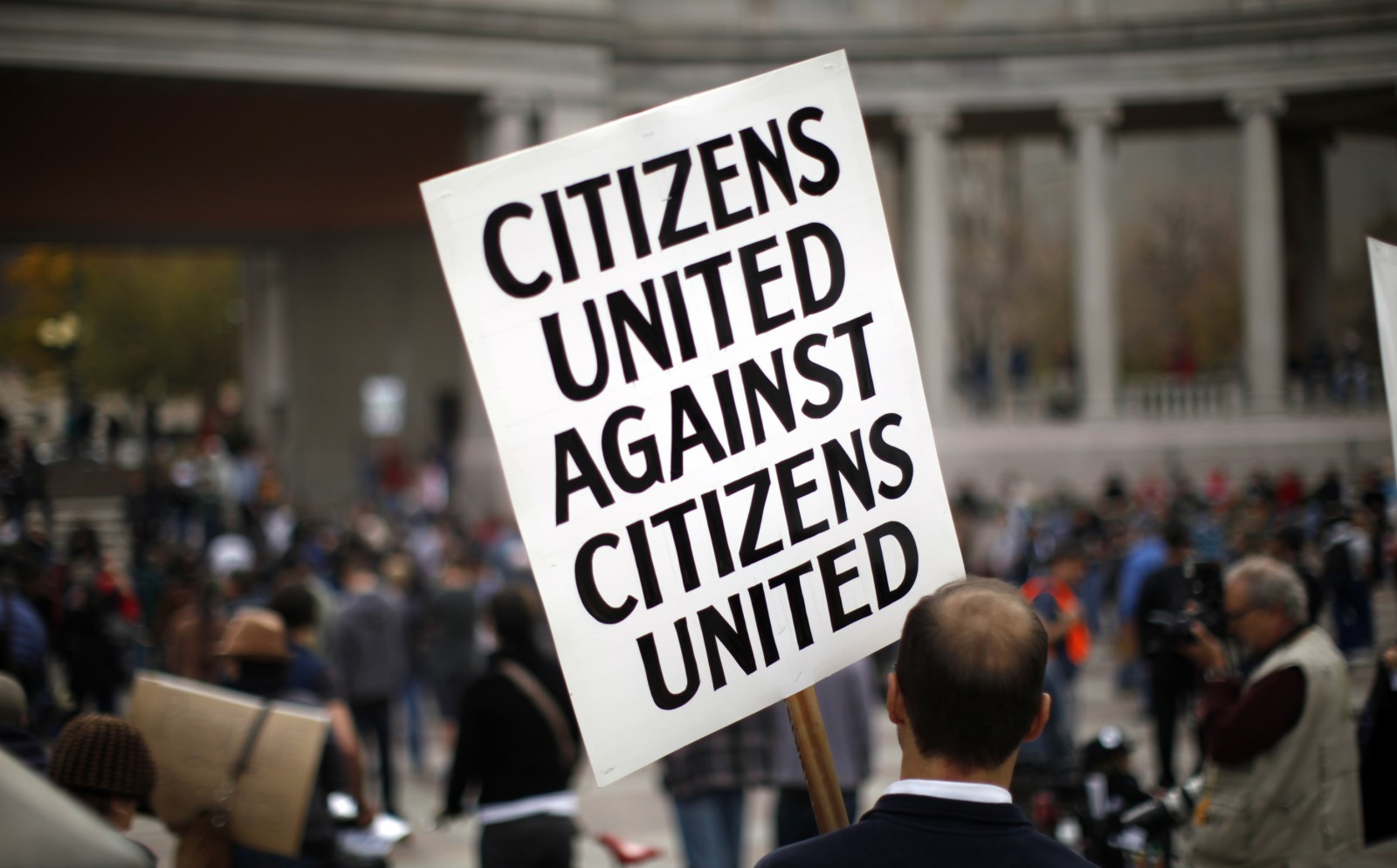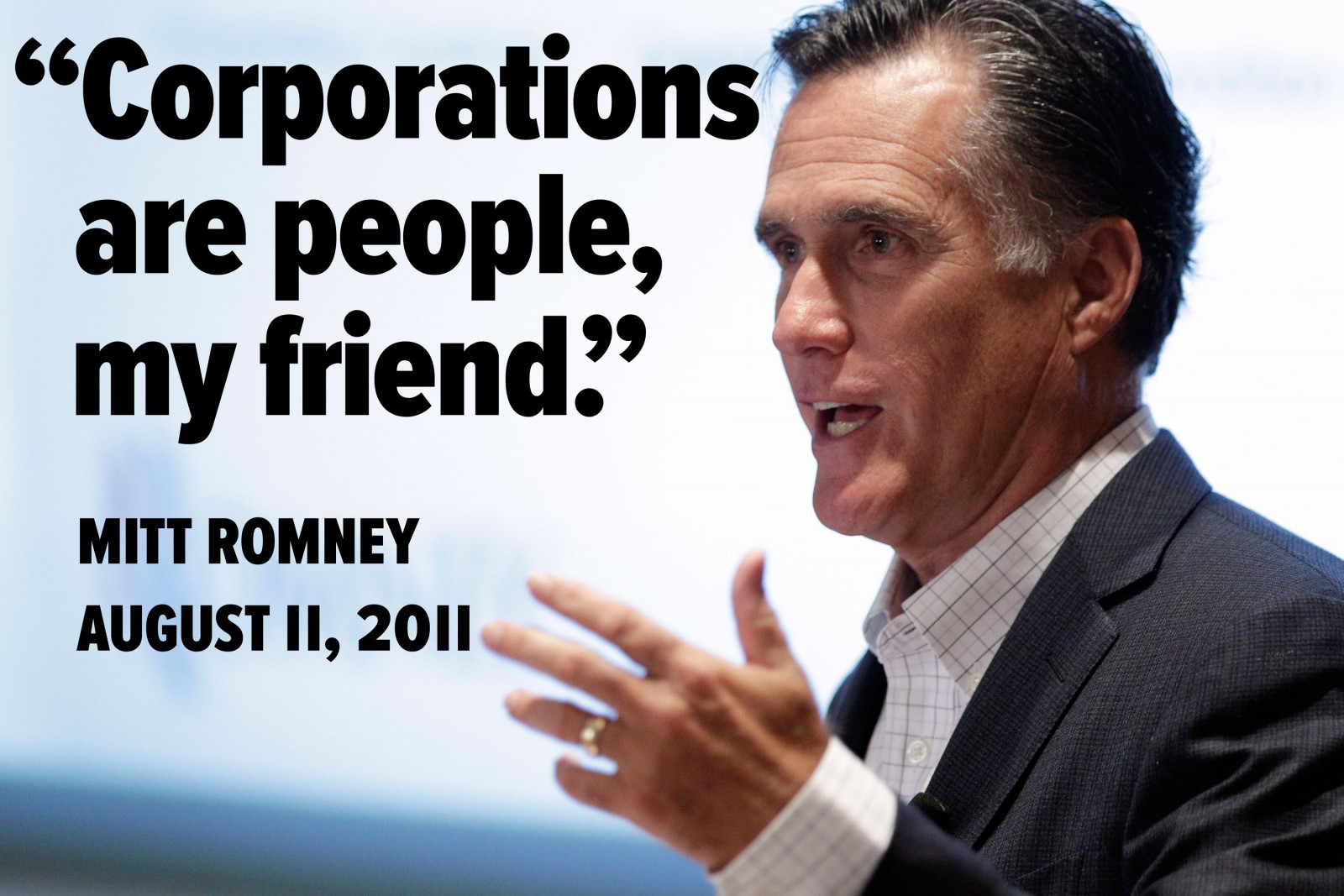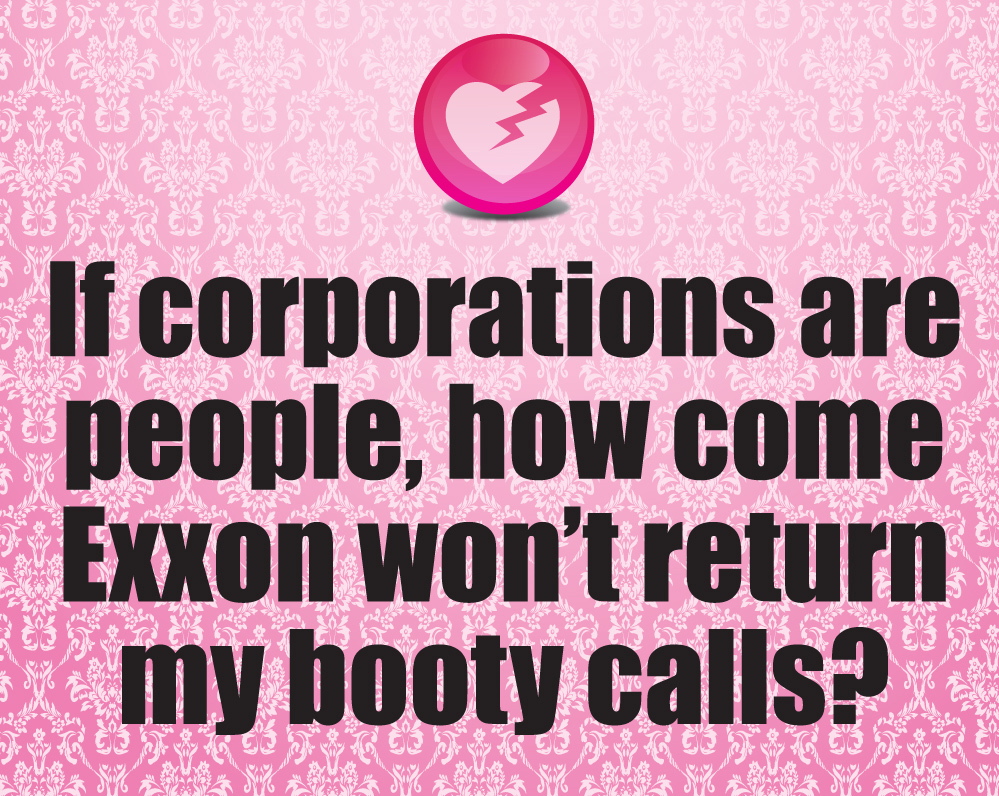
Not long after writing my article about how to expose the laughable idea of corporate personhood by riding alone in a carpool lane with corporate papers and trying to plead the case in court, I read about [the story of Jonathan Frieman](http://www.huffingtonpost.com/2013/01/07/jonathan-frieman_n_2427971.html" target), a San-Francisco based political activist who tried that very same thing. I interviewed him about his ongoing case and also asked him about some other hypothetical corporations-as-people scenarios.
CG: So tell me about what happened in traffic court. You walked up to the bench and the judge said…
JF: The judge basically said that a sheaf of papers couldn’t signify a corporation or the personhood of a corporation. And he never spoke to the fact that articles of incorporation, which is the method by which a corporation actually comes into being, had any weight whatsoever.
CG: Did you have a lawyer handling this case for you, or was it just you?
JF: I definitely had a lawyer. His name is Ford Greene, he’s a local attorney and friend of mine, and he likes to pick up issues like this. He had a two-pronged argument. The first was, based on its face, what the sign on the side of the road says, is that you need two more persons in the car, and in the CA vehicle code, a person is defined as a human being or a corporation.
The second thing he brought up is that if you’re going to deprive someone of property, then the law has to be clear exactly as to how and why that would take place. It’s a very strong area of the law called “notice,” and the notice is signified by the sign on the road and the enshrined code. It’s ambiguous, because CA vehicle code 470 says a corporation is a natural person. The case ought to be dismissed in my favor, because the papers that bring a corporation into being, bring personhood into being as well.
CG: So the judge’s ruling didn’t go your way. Did you have to pay a fine?
JF: The fine was $500, but we appealed the case, so the fine is being held. We’ll be submitting an appellate inquiry on May 16. The thing about it is, this judge knew he was in a dilemma. If he said yes, then he’s saying that everybody could get incorporation papers and ride in the carpool lane as the law allows. A court is probably not going to allow an absurd ruling to stand. So he had to find some reason that shows the law didn’t intend the carpool lane used as a place where corporate persons would be allowed. Now it’s up to the 3-judge appellate court.
CG: So I have a corporation. I formed it in 2010, so it’s maybe 2 or 3. I don’t know how old your corporation is, or whether it’s male or female. But say our two corporations wanted to marry and file for a marriage license in court as legal persons, marriage equality laws notwithstanding. Could we do that?
JF: It doesn’t matter if a corporation is male or female, they’re fictitious entities. They don’t really exist. Some people say, can you marry one? Well, they’ve gotta be 18 years of age. Theoretically, your 2 year-old corporation would not allowed to be married. It’s debatable whether it would pass the citizenship or resident test. If a corporation wants to vote, it needs to be a citizen. To talk about this issue is a complex issue. So when you say that you own a corporation, then you don’t. You own stock in the corporation.
CG: That actually leads to my next question. It could be said that corporate personhood is a two-sided coin, because if a corporation is a person, and if people own corporations, then that means people are commodities. And our constitution explicitly says no one person can own another person. So how does this have any leg to stand on in the first place?
JF: Lawyers would probably split hairs, in that they would say a corporation has personhood, rather than being a person. Again, that’s ambiguous under almost any ordinance. In California, the state, county and municipality where there’s a definition section that says persons or natural persons or corporations. Technically, what gets sold when you sell your corporation is stock, you don’t really own the corporation.
CG: So can this be something that happens everywhere? Could this start a movement, where everyone forms a corporation and drives in the carpool lane to prove a point?
JF: You need to have enough people willing to spend money on a lawyer and be willing to lose a case to prove a point. I’ve spent almost $10,000 on a lawyer and a PR firm, which is how you heard about it. I had considerable assets to invest in this case, and I wouldn’t recommend someone try this unless they have assets available to take it through the courts and have a good attorney. So, the army of people is pretty selective. It’s hard to raise an army of folks who could be willing to go through this kind of effort to get in front of a judge and for a judge to say you have a person as the law declares. We just want to take some sort of disruptive action that makes people smile, gets them laughing about it. This kind of ingenious twisting of the rules to make corporate power subservient to human beings instead of the other way around is a good idea.
CG: So what’s your opinion on efforts to force a constitutional amendment stripping corporations of all their human rights, like Move to Amend is doing?
JF: I think it’s a very good effort. It’s part of a larger discussion. The folks at Move to Amend started their effort in Fall of 2009, and it was started in my house. People like David Cobb, George Frye, the group Free Speech For People, we all gathered together to see what we could do. In anticipation of the Supreme Court ruling in early 2010 which we knew would come down in a 5-4 ruling. That would not be good. And so, thanks to David Cobb and a few other people around the country, we’ve been able to grow a very strong effort against the Citizens United ruling. The thing about that ruling is that it didn’t establish corporations were people. That was done as far back as 1841. This bears some looking into—in 1819, corporations were given a gift by the Supreme Court and were told that they had a contract with the state rather than being a creature of the state, and ever since then, they’ve been trying to become less and less of a creature of the state and more of a separate entity. And they’ve done that very well.
Personhood is just one of the things they went after to establish that kind of autonomy. Corporate personhood itself is a good learning tool. It’s a great way to teach people how absurd it is that a corporation like Target, with 300,000 employees and 17,000 stores, and treats their employees horribly and pays them low wages, and that entire group is a person. They’re a person under the law, but a terrible person. That’s what we’re trying to point out. The issue of corporate personhood is a great way for people to start becoming aware about how much we’re dominated by corporations in our daily lives.
CG: So let’s say I want to naturalize my corporation as a U.S. citizen and collect signatures for it to run for local office here in Wisconsin as a way to show the absurdity of corporate personhood. Has that already happened?
JF: There’s a man in Maryland named Eric Hensal who is trying to get his corporation, Murray Hill Inc., registered as a candidate for Congress. You can find out about that at murrayhillweb.com.
3 WAYS TO SHOW YOUR SUPPORT
- Log in to post comments














